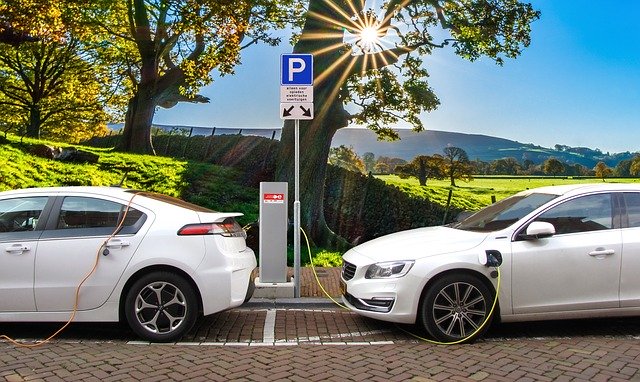Do you need a new car? Are you considering choosing an electric vehicle over a gas-powered car? It’s one of the most impactful environmental decisions you will make in your life — in fact, Americans buy an average of 9.4 vehicles during their lives. You have plenty of chances to make the right choice for the planet, so let’s dig into the trade-offs that make an EV the better choice.
Sometimes it’s hard to figure out which of the many choices you face is the most environmentally responsible. There are so many angles and trade-offs to consider that even a well-researched decision can feel like a leap of faith. For example, replacing your classic muscle car with an electric vehicle is clearly a green choice. On the other hand, buying an electric vehicle so you can quit taking the bus is not. But what kind of impact does replacing your newish compact car with a zero-emissions vehicle have?
When it comes to whether and what kind of car to buy, the right answer may be different for everyone. Here’s what you need to know to make your own greenest choice.

The Carbon Footprint of a Car
Every step in the life cycle of a car has a significant environmental impact. Cars require a lot of material and energy resources to manufacture. They contain numerous toxic and nonrecyclable materials that are damaging to the environment both in the manufacturing process and at the end of the automobile’s life. Although significant, the environmental costs of automobile production, recycling, and disposal are difficult to quantify. But by far the biggest impact of a car’s life cycle — an estimated 80% to 90% — comes from the extraction and burning of fossil fuels to operate the vehicle.
At least, that’s the case for a traditional combustion engine car. The proportion is much different for electric vehicles (EVs), which operate much more efficiently than gas-powered cars. But due to their batteries, which require metals with extremely damaging extraction practices, the production of EVs has a much larger footprint than the production of regular cars. According to one study, emissions from electric car production are 59% higher than the production of internal combustion engine vehicles (ICEVs).
The same study (assuming a life of 150,000 miles) determined that EVs have 18% lower life cycle emissions than ICEVs. That number can shift depending on the source of the electricity that powers the EV. For example, a fossil-fueled compact sedan emits about 251 grams of CO2 per kilometer driven. Driving an EV in Australia (where the electricity mix is about 21% renewable) emits about 170 grams of CO2 per kilometer. An EV in New Zealand (where the electricity mix is 84% renewable) emits only about 25 grams of CO2 per kilometer on average. In both cases, an EV outperforms an ICEV, but the difference is much more significant where renewable energy is used.
Environmental ROI
So, wherever you live, an EV is a better purchase than an ICEV. But does it make sense to upgrade your car in order to get that improved environmental performance? How long does it take for fuel efficiency to compensate for the manufacture of a new car? Again, much depends on the specific car chosen, the source of electricity, and how much you drive, so it’s hard to provide a general guideline. But one Australian study developed a formula to account for the variables:
productionICE + (annualICE x T) = productionEV + (annualEV x T)
They calculated that a standard-range EV would compensate for its higher production emissions in just under one year, with an extra three months for every battery replacement. Remember that your mileage with this formula may literally vary.
How You Drive
If you drive less than average or your electricity source is coal, it will take longer for an EV to shrink your carbon footprint. Or if your current car gets very good gas mileage, switching to an EV will not affect your transportation footprint as much as replacing a gas guzzler would. If buying an EV leads you to drive more instead of taking the bus or walking, it can even increase your environmental footprint.
In the final analysis, buying an electric vehicle is always greener than buying one with a combustion engine. Buying an EV will usually result in a smaller carbon footprint than waiting longer to replace your old (or even not-so-old car). But EV owners should still be conscious of the environmental effects of driving. And they should still take steps to minimize their impact. Buy used when possible, maintain your car for peak efficiency, and if you don’t have to drive to get someplace, leave the car at home.
End of the Road
One final consideration is what to do with your old car once you upgrade to electric. American drivers average 25 mpg. If the car you are replacing gets above-average gas mileage, it’s likely that the person who buys it will be improving their carbon footprint, too. But if your car gets low gas mileage, consider donating it to charity or recycling it.
The post Home “Eco”nomics — Should You Buy a New Car? appeared first on Earth 911.








